Customs Procedures
S&H Core Courses
Our full day and 2-day S&H favourites are here to deliver a broader knowledge on either a more advanced subject or cover a range of subjects at a beginner level. These full day courses are always hosted live, to allow for interaction and questions, they can be held face to face or in a virtual classroom environment.

Beginners Guide to Exporting & Importing
This engaging and informative one-day course will introduce you to the world of exporting and importing and focus on the terms and practices used through interactive exercises and activities. This will give you an insight into how goods are bought and sold worldwide.

Export Essentials: An Introduction to Exporting
Following on from the Beginners Guide to Exporting / Importing this interactive session covers the key points of exporting goods. It covers essential details about the Incoterms Rules, export documentation and working with freight forwarders to ensure goods are correctly declared. Ideal for anyone whose job has an export connection, whether sales, contracts, finance, shipping or for a managerial overview.
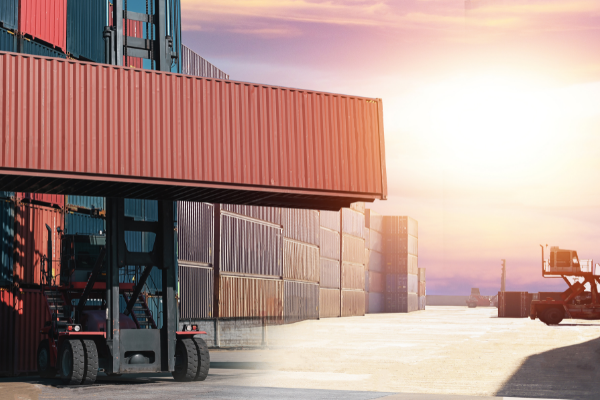
Import Essentials: Focus on Importing
This core S&H training course is an excellent way to learn about importing. It is designed to provide participants with a practical understanding of essential topics, such as Customs procedures and the UK Trade Tariff, as well as implications for choosing the correct shipping term, paying duties and managing the logistics. The aim is to provide participants with the knowledge and skills to streamline import operations and work effectively with internal departments and freight forwarders.

Beginners Guide to Customs Procedures
This course focuses on the practical aspects of UK Customs procedures. It covers the crucial areas of Customs compliance and provides a comprehensive overview of the Customs Special Procedures that exporters and importers can utilise to save import duties and taxes. In the post-Brexit era, organisations are under increased pressure to demonstrate their understanding of Customs procedures to HMRC, and this course equips you with the knowledge and skills to do just that.

Advanced Guide to Import, Export & Customs Procedures
The course aims to guide you to a higher standard of compliance with import and export legislation. After attending, delegates will leave with greater confidence in updating/reviewing existing procedures, talking to logistics providers, and explaining complicated issues in a simple way to other business areas.

Preparing for a Customs Audit
This course is designed to help traders prepare for HMRC audits, ensuring their understanding and compliance with customs regulations. It will cover essential procedural requirements and key areas of focus in audits, such as valuation, origin preference, VAT, evidence of export, the use of special procedures (IP/OP), and Returned Goods Relief (RGR). Delegates will leave with a practical checklist to support thorough preparation for HMRC’s customs audits.

Focus On: NCTS What you need to know
Since the UK left the customs union of the EU, there has been an increased need for companies to use transit to move goods into or through the EU Member States. This workshop takes you from a basic review of what transit / NCTS are to the application process to become an authorised consignee/ consignor. It also illustrates how to apply for and use a transit guarantee. With tips on making transit declarations, the role of the Transit Accompanying Document (TAD) and discharging a transit movement.

Understanding Origin & Preference
This interactive workshop clarifies the difference between origin and preferential origin, emphasising their role in trade compliance. Through case studies and exercises, participants will learn about essential documentation, declarations, and compliance verification for preferential rules in trade agreements. With the increase in HMRC audits, this session equips businesses with the skills to confidently manage origin determination and ensure compliance in both import and export activities.
Focus On Courses
Channelling our expert knowledge on a specific subject to deliver a in-depth training session. These half and full day training courses are aimed at delegates with a basic understanding of customs procedures and international trade.

Focus On: IPAFFS
IPAFFS (Import of Products, Animals, Food and Feed Systems) is a web-based service for applying for Common Health Entry Documents (CHEDs) for imports into the UK. Applicable to live animals, POAO, HRFNAO and composite goods, understanding how to use this system is vital for many business sectors. Join us in reviewing how to access IPAFFS, complete an IPAFFS notification and process the import.

Focus on Food: Export Procedures
This newly launched course is designed to meet the rising demand for specialised training in the export processes specific to food and drink products. It offers comprehensive guidance on navigating the complex regulatory landscape, including an in-depth look at the key regulatory bodies involved in the export process, their functions, and the specific requirements they impose on exporters in the food and drink sector.

Focus on Food: Import Procedures
Importing food, drink, plant health products, POAO, and composite goods into the UK requires an awareness of the phytosanitary and pre-registration requirements. This full-day session will focus on what a trader needs to know to bring goods through customs and port health and meet other government department regulations, e.g., DEFRA. It will also demonstrate the pre-notification process on IPAFFS.
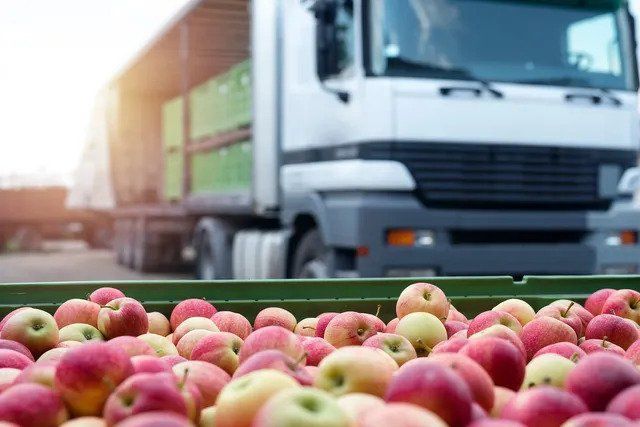
Focus on Food: Tariff Classification
Designed for anyone involved in classifying food products whether for Imports or Exports. This one-day workshop has been introduced to meet growing demand for specialist training in the Tariff Classification of food products in chapters 1-24 of the Integrated tariff of the UK that apply to importing Food and drink products.

Focus On: ATA Carnets - A Practical Guide to Applying for and using
Since the UK departed from the EU, there has been a growing need to manage temporary movements of goods. If you're involved in sending or receiving items for purposes such as demonstration, exhibition, testing, or using professional equipment, the Passport for Goods may be worth considering. This half-day session will introduce you to the ATA Carnet Scheme, an international system designed for the temporary movement of goods.
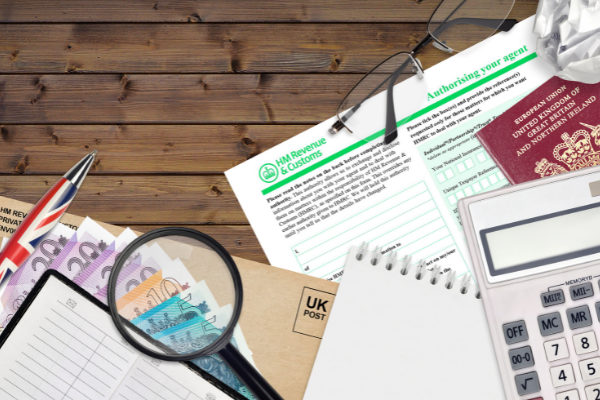
Focus On: AEO and Trusted Trader Scheme
This presentation focusses on what the HMRC Authorised Economic Operator Status accreditation is, but more importantly, examines whether being an AEO will benefit your own organisation or if staying outside the AEO system will have a detrimental effect on your business. AEO status was introduced in the EU in 2008 and is now part of UK legislation and will be linked to the new border management system coming into force the Trusted Trader Scheme.
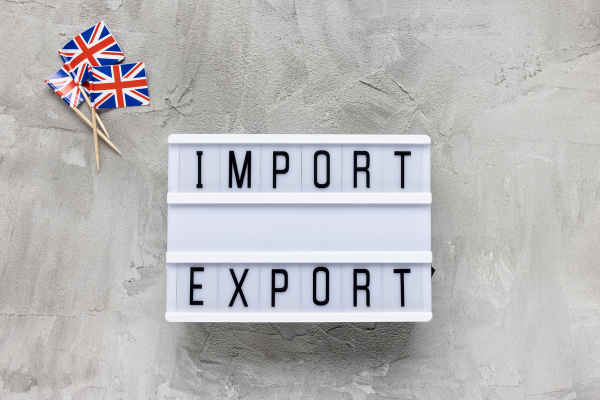
Focus On: Temporary Imports & Exports
This course is designed for those handling temporary movements of goods, whether for demonstrations, exhibitions, testing, or repairs. Participants will learn the customs and commercial processes required to manage these movements, ensure compliance, and minimise unnecessary costs. Whether goods are hand-carried or sent as unaccompanied freight, the course covers the necessary export and import declarations to manage temporary shipments and avoid customs delays effectively.

Focus On: Understanding Free Trade Agreements
This session is essential as the UK develops independent trade arrangements to boost imports and exports. It covers foundational concepts of FTAs and PTAs and examines their structure, purpose, and key elements, like rules of origin, with emphasis on the EU-UK Trade and Cooperation Agreement (TCA). This course empowers professionals to navigate international trade confidently and leverage FTAs for a competitive advantage.

Focus On: VAT in International Trade
This session provides essential guidance on managing VAT in international trade. Participants will learn about UK VAT zero-rating for export supplies, required evidence, VAT obligations for receiving supplies, handling import VAT, and postponed VAT accounting (PVA). The course also covers reclaiming import VAT and when a UK business needs VAT registration in foreign markets, including the EU. Gain practical knowledge to ensure compliance and streamline your VAT processes.
Technical Workshops
Are you looking to learn a particular skill? Our technical workshops cover a range of topics and aim to enable the delegates to come away with a practical skill, such as how to complete an export entry or knowing how to classify goods. You can expect to spend some time in breakout rooms when learning in the virtual classroom to work on practical examples of what has been covered in the presentation.

How to Complete Export Entries
This workshop is designed to equip you with the knowledge and skills to complete export Customs entries in the UK. It provides delegates with an understanding of how to build the data entry information, which data elements are essential, and how to declare license information. By the end of the course, you will have the knowledge to complete a basic export Customs entry and the confidence to build on this to submit more complicated entries. This is important whether you are an agent or an exporter.

How to Complete Import Entries
This workshop is designed to equip you with the knowledge and skills required to complete import Customs entries in the UK. It provides delegates with an understanding of how to build the data entry information, which data elements are essential, and how to declare payment methods. By the end of the session, you will have the knowledge to complete a basic import Customs entry and the confidence to build on this to submit more complicated entries. This is important whether you are an agent or importer.
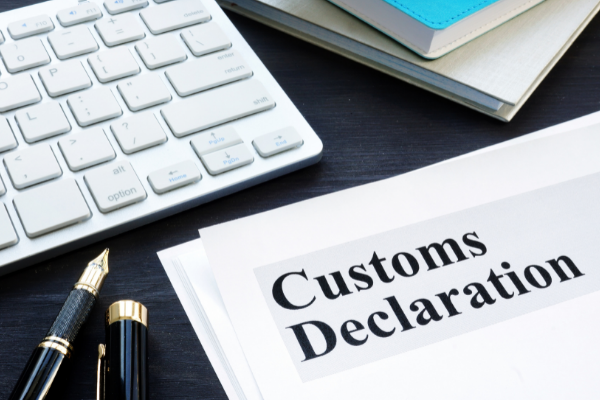
Advanced CDS Technical Workshop: Exports
This advanced workshop will not only teach you how to create an export declaration on the Customs Declaration Service (CDS), but also provide you with the confidence to do so effectively. Each data element group will be thoroughly explained, with illustrative examples provided. Our technical advisors, with their extensive experience in multiple software solutions for CDS entries, will equip you with the practical knowledge to complete Customs export declarations.

Advanced CDS Technical Workshop: Imports
This advanced workshop will not only teach you how to create an import declaration on the Customs Declaration Service (CDS), but also provide you with the confidence to do so effectively. Each data element group will be thoroughly explained, with illustrative examples provided. Our technical advisors, with their extensive experience in multiple software solutions for CDS entries, will equip you with the practical knowledge to complete Customs import declarations.

Customs Warehousing Explained - Technical Workshop
With the changes brought about by the UK's exit from the EU, more companies are turning to customs warehouses as a crucial tool for maintaining an efficient supply chain. This workshop provides a comprehensive guide to setting up a customs-bonded warehouse facility in the UK. You will learn how to improve cash flow, navigate new customs regimes and trade agreements, and save money using Simplified Procedures, all while ensuring compliance with post-Brexit customs requirements.

Inward Processing Relief - IP Workshop
This course provides a comprehensive overview of Inward Processing (IP) and Outward Processing (OP), essential customs procedures that allow businesses to bring goods into the UK for processing, repair, or service without incurring unnecessary duties or VAT, especially when the ownership of goods being returned for repair, service or calibration are not yours. By using these special procedures correctly, businesses can significantly reduce costs and improve efficiency.
Face to Face Courses
All of our Face to Face training courses are delivered in a Covid-19 secure training room. The safety of our trainers & clients is of upmost importance to us. Our Face to Face courses will be limited to a maximum of 10 delegates.
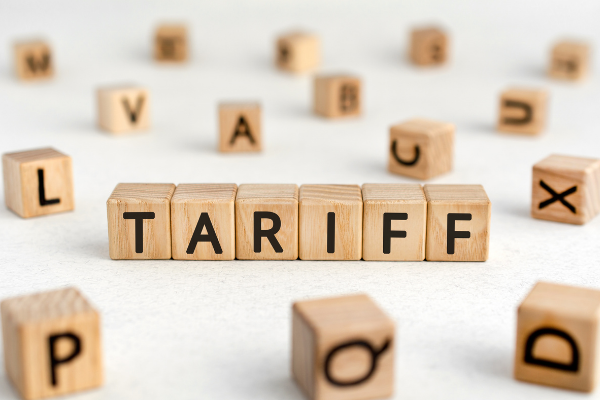
Tariff Classification Explained - Technical Workshop
In this workshop, participants will learn why the tariff is essential for accurate commodity code classification and its connections to other vital trade measures. The course explores the structure of the Harmonised System (HS) and includes interactive sessions to help you master the classification of your goods. You’ll gain an understanding of section and chapter notes, as well as when and how to apply the General Interpretative Rules (GIRs), ensuring confidence and accuracy in tariff classification.

The Importers Workshop: 2 Day Advanced Guide to Import Procedures
This highly popular two-day workshop, a practical follow-up to Import Essentials, focuses on applying customs procedures in real-world scenarios. Participants are encouraged to bring samples of their own import documentation, allowing hands-on exercises to turn theoretical knowledge into practical skills. Through these interactive sessions, delegates will gain a deeper understanding of customs rules and receive clear, actionable guidance on import regulations.

Valuing Goods for Customs Purposes - Technical Workshop
This hands-on course covers essential customs valuation principles, focusing on the WTO Valuation Agreement and its application under UK law. Participants will learn the differences between intercompany pricing and customs valuation and how to calculate import values, including required cost additions and exclusions. Through practical exercises, attendees gain insights to ensure compliance and accuracy in valuing goods for customs, whether for sales, returns, temporary movements, or free-of-charge items.

Customs Warehousing Explained - Technical Workshop
With the changes brought about by the UK's exit from the EU, more companies are turning to customs warehouses as a crucial tool for maintaining an efficient supply chain. This workshop provides a comprehensive guide to setting up a customs-bonded warehouse facility in the UK. You will learn how to improve cash flow, navigate new customs regimes and trade agreements, and save money using Simplified Procedures, all while ensuring compliance with post-Brexit customs requirements.

Inward Processing Relief - IP F2F Technical Workshop
This course provides a comprehensive overview of Inward Processing (IP) and Outward Processing (OP), essential customs procedures that allow businesses to bring goods into the UK for processing, repair, or service without incurring unnecessary duties or VAT, especially when the ownership of goods being returned for repair, service or calibration are not yours. By using these special procedures correctly, businesses can significantly reduce costs and improve efficiency.

Tariff Classification Explained - Technical Workshop
In this workshop, participants will learn why the tariff is essential for accurate commodity code classification and its connections to other vital trade measures. The course explores the structure of the Harmonised System (HS) and includes interactive sessions to help you master the classification of your goods. You’ll gain an understanding of section and chapter notes, as well as when and how to apply the General Interpretative Rules (GIRs), ensuring confidence and accuracy in tariff classification.

The Importers Workshop: 2 Day Advanced Guide to Import Procedures
This highly popular two-day workshop, a practical follow-up to Import Essentials, focuses on applying customs procedures in real-world scenarios. Participants are encouraged to bring samples of their own import documentation, allowing hands-on exercises to turn theoretical knowledge into practical skills. Through these interactive sessions, delegates will gain a deeper understanding of customs rules and receive clear, actionable guidance on import regulations.

Understanding Origin & Preference
This interactive workshop clarifies the difference between origin and preferential origin, emphasising their role in trade compliance. Through case studies and exercises, participants will learn about essential documentation, declarations, and compliance verification for preferential rules in trade agreements. With the increase in HMRC audits, this session equips businesses with the skills to confidently manage origin determination and ensure compliance in both import and export activities.

Export Essentials: An Introduction to Exporting
Following on from the Beginners Guide to Exporting and Importing, this interactive session covers the critical areas of exporting goods. It covers essential details about the Incoterms® rules, export documentation, and working with freight forwarders to ensure goods are correctly declared. It is ideal for anyone whose job has an export connection, whether in sales, contracts, finance, shipping, or for a managerial overview.

Import Essentials: Focus on Importing
This core S&H training course is an excellent way to learn about importing. It is designed to provide participants with a practical understanding of essential topics, such as Customs procedures and the UK Trade Tariff, as well as implications for choosing the correct shipping term, paying duties and managing the logistics. The aim is to provide participants with the knowledge and skills to streamline import operations and work effectively with internal departments and freight forwarders.

Beginners Guide to Exporting & Importing
This engaging and informative one-day course will introduce you to the world of exporting and importing and focus on the terms and practices used through interactive exercises and activities. This will give you an insight into how goods are bought and sold worldwide.

International Trade Compliance Manager -F2F
This popular workshop is aimed at anyone involved in international trade and customs compliance within a business. Whether from a management or administrative point of view, this course will illustrate how to promote a strong "compliance culture" throughout an organisation. It assists in understanding international regulations and how to establish performance metrics (KPIs). It covers classification, valuation, origin, duty minimisation schemes, licences, AEO, and audits.

The Export Course -F2F
This two-day course is an ideal progression for those who have completed Export Essentials, the Export/Import Practitioner Learning Pathway, or individuals with experience in export operations. It provides a clear, practical, and thorough exploration of the core aspects of export procedures tailored to today’s trade environment.
About Our Courses
Aimed at exporters, importers, agents and customs brokers, this collection of courses looks at the HMRC CHIEF system, the NCTS system and the new CDS system and how to use them. It also covers related topics such as VAT legislation and what to do in the event of a Customs audit.
Don't forget that Strong and Herd can also provide you with bespoke in-house training to suit your specific training needs. Simply contact us to discuss your complete requirements.
FAQ's
- We supply goods to an unrelated company in another EU Member State which can be subject to transfer price adjustments at a later date. If prices are adjusted do I have to submit corrected Intrastat data once the true value is known?
Yes. You should submit corrected data via the on line system, as described in paragraph 6.3 of the Intrastat General Guide (Notice 60). Use the on line amendment form at https://www.uktradeinfo.com/Intrastat/ElectronicSubmission/OnlineAmendments/Pages/OnlineAmendmentsForm.aspx
NB: You only need to submit a correction if the value of the error exceeds the thresholds shown in paragraph 6.3 of Notice 60.
- Why do I have to declare net mass on the customs declaration? It's yet another piece of information I've got to try and find and it doesn't seem to have much purpose.
Net mass must always be declared on customs entries, including the EU Intrastat reports. It may seem a pointless exercise, but don’t forget that for some commodities, net mass is a far more relevant measure than value. Value can depend on commercial pressures and can fluctuate wildly, whereas the weight of goods generally remains constant.
- I think our technologists should join in the Commodity Code classification process, particularly as our products are technically sophisticated, do you agree?
Yes Totally!! But… remember, whilst technology specialists may be able to describe goods in their terms, the classification of goods for import and export follows fairly precise rules in the UK Integrated Tariff. Whilst taking the advice of technologists, you should always consult the chapter and section notes in the Tariff and any of the number of guides to assist in classifying particular types of goods. Ultimately, the Harmonised System (HS) Explanatory Notes should be consulted. If you are still uncertain, get in touch with the Tariff Classification Team via E-Mail – classification.enquiries@hmrc.gsi.gov.uk
- Hopefully you will be able to make sense of this query. We sold some demo units to a sister company in the US back in 2018 & 2019. This company was then sold and we bought the units back from them which were then delivered to another company in the USA as our stock but for demonstration purposes. These units have now been sold to a company in Mexico and they are requesting that we supply them with a EUR-1 Preference Form so they can clear customs easier. The 5 pieces are still in the USA. Is this something we can do?
I’m afraid you can’t issue an EUR preference document unless the goods are physically in an EC member state. This is because of the “direct transport” rule. The EUR1 Form would, if you could issue it, allow the Mexican’s to import the goods at a lower customs duty rate. If they ask for a NAFTA (North America Free Trade Agreement) Certificate instead – you can’t do this either because the NAFTA rules says the goods must be manufactured in USA, Canada or Mexico. I’m afraid they are stuck with importing it as a standard supply and pay the customs duties and taxes. If this is a lot of money then you could consider shipping the units to the UK first and then sending them to Mexico.
- A US customer recently returned some items for repair. The problem is that we supplied them with a large system and they have only returned a small part of the whole but have declared the full system price on the paperwork but of $500,000. We will be using Inward Processing Relief (IPR) so duty won’t be paid we don’t want to have an artificial duty liability. Can we legally declare the correct price for the small bit to Customs ($25,000)?
Yes!! Any import with incorrect value shown on the senders’ paperwork can be amended. You must make a written declaration of correct value on your letterhead to HMRC via the freight forwarder. You must be able to justify the change in value. This is important for both higher and lower values. You can use IPR as you mentioned to suspend the duty/vat, but only the correct amount of duty/vat based upon the correct value of landed goods. Another alternative would be Returned Goods Relief (RGR) if items were exported in the last 3 years and have returned unchanged, other than them not working
- What is or were Smoot-Hawley as it was referred to in a recent document on tariff controls but not explained?on
Willis Hawley (congressman from Oregon) and Reed Smoot (senator from Utah) were responsible for the Tariff Act of 1930 which some economists believe helped to make the 1930’s depression what it was. The Act increased nearly 900 American Import Duties in a display of American protectionism
- Arm's length trading and 'distance selling' what are they and what is the difference (if any)?
They are very different indeed. Arm’s length trading is an expression used in relation to the GATT Valuation rules. It is used as an expression in section 30.1 of Customs notice 252 which is the section that explains how to demonstrate that you do not get a reduced price on the goods you are valuing for customs purposes at import if you are related (in the business sense) to the party who has consigned the goods to you from overseas. ‘Distance selling’ on the other hand is a term used to describe supplies of goods from one Member State to a person in another Member State where:
- The customer is not registered for VAT and
- The supplier is responsible for delivery of the goods
The recipients of distance sales will mainly be private individuals. The rules are intended to transfer the place of supply to the Member State in which the customer receives the goods. The rules are intended to combat distortion of trade and unfair competition because of the lack of harmonization of VAT rates across the EU






